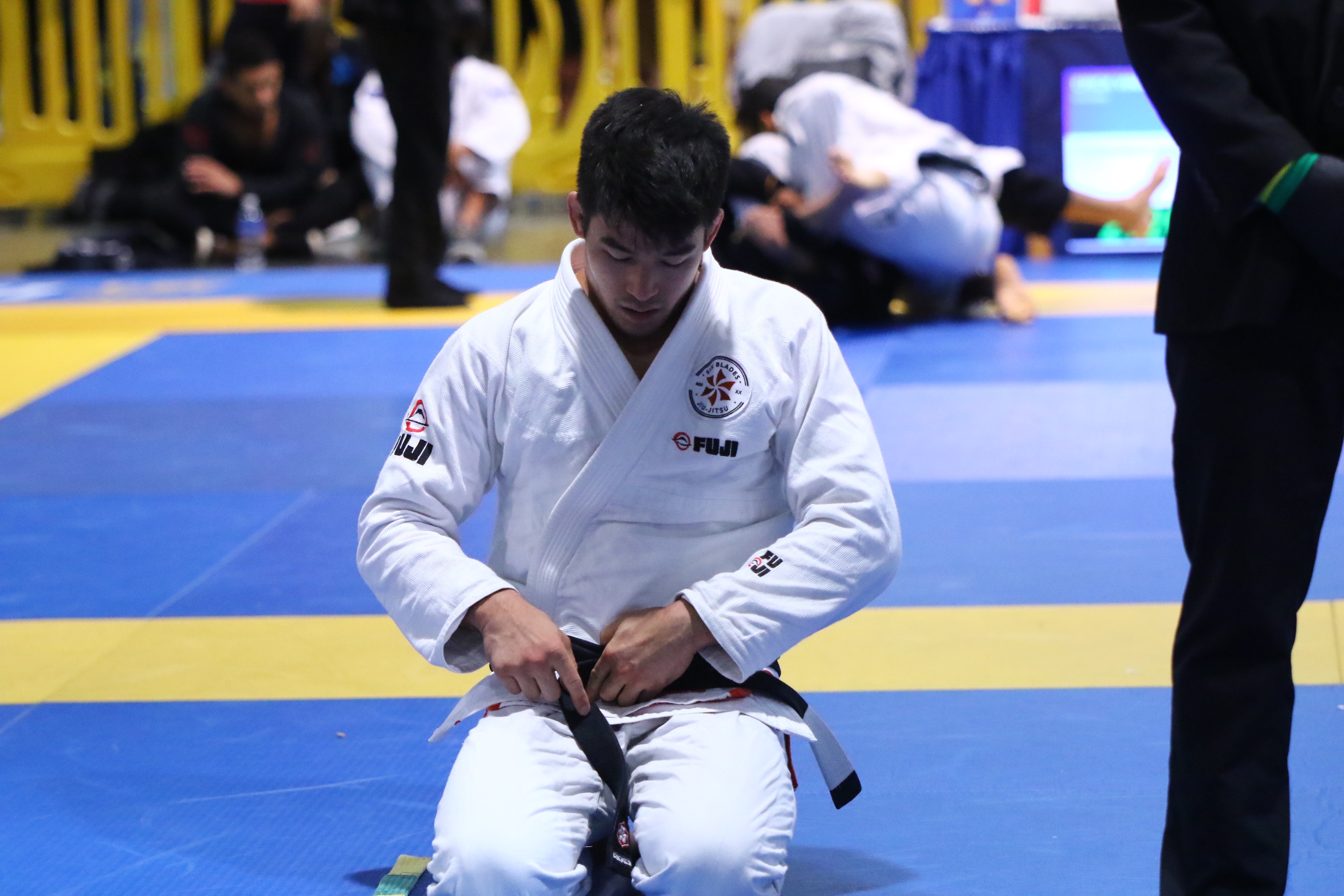Acceptance #271

In Jiu Jitsu, one of the most challenging aspects that we face is learning to accept force or energy from your adversary. This valuable tenet stems from the understanding that in order to manipulate your opponent’s energy, you must first absorb it rather than meeting it head on with your own strength and energy. This is the principle of ju yoko go o seisu interpreted as “softness controls hardness”, one of Master Jigoro Kano’s rudimentary philosophies. A prime example of this being applied in a Martial Arts setting, is a situation where you are faced with a larger, stronger opponent. When they push into you, if you push back with all your strength you will accomplish little and perhaps tire before eventually becoming overwhelmed. Alternatively, if you chose to move yourself in an effort to off balance your opponent it may result in their strength being equalized or diminished in comparison to yours while presenting you with an opportunity and angle to attack them as they attempt to regain their balance. Additionally you could use the momentum created through your elusive movements in an effort to off balance them, creating yet another series of off balancing maneuvers and attacks. In life too there exists a fascinating parallel. While our nature is to resist many things that have the potential to benefit us, such as wanting to stay home rather than attend a school function or work party where we might otherwise come across the future love of our life, grand business opportunity or run into a old friend with whom you instantly rekindle a former relationship. I in my teenage years, for example, hadn’t a chance of knowing that my destiny lay in Martial Arts. Even as I grew older I never envisioned it to the extent of owning an academy or enjoying building leaders in the community. Which leads me to the idea that part of the reason we avoid leaving what some will call the comfort zone is because we have in some way, arrogantly or naively, “made up” the outcome that should take place instead of accepting that so much of life is beyond our understanding or control and that many of the greatest experiences are completely unintentional. It’s worth pointing out that the experience itself is oftentimes the reward. A great example of this to me is found in competition, many athletes are hesitant to try a competition for the first time because they have convinced themselves that they are not ready, yet they were conceivably also “not ready” when they stepped into a dojo or tried a new sport for the first time. Oftentimes students begin their journey to achieve some higher state, whether it is fitness, security, confidence etc. which requires that they surrender themselves enough to come in and accept the guidance of a Sensei or a coach. A tournament or competition is arguably no different, one must accept it for what it is, a method of developing oneself through trial and error from raw feedback that oftentimes stings your ego. This is the part that is far more terrifying about competing than the risk of physical injury or bodily harm, after all, it can all be over as soon as you decide it’s over. It’s no different than the Navy Seals in BUDS training who ring the bell when they’ve had enough. So why the hesitation? Is it in fact the ego’s reluctance to risk losing in front of everyone? It escapes me which Greek philosopher declared that public humiliation is the single greatest human fear and no one is truly immune to this way of thinking as long as they are human. I recently had to overcome such a mental block that had me fixating on whether or not I could win a tournament that I was considering attending, little did I know that I had been distracted from the reason I fight to begin with. It took a close friend to remind me of the fact that I compete because I enjoy it and overcoming the challenge is what excites me more than the fight itself. The upside of a mindset that constantly seeks challenge rather than wins is that you will eventually find that you are capable of more than you ever thought. It’s important to know that we are capable of becoming victim to the obsession with winning or losing rather than being grateful or excited for the opportunity to be where you are and try something new. Sometimes those lessons are what it takes to realize that the biggest achievement we can gain from sports and competition is identifying with the process of becoming a champion, not a medal or trophy to validate our self worth. We are all capable of falling victim to this way of thinking which results in our esteem being directly correlated to whether or not we won or lost, not recognizing that the competition serves us as vehicle into the unknown where our true merits can be uncovered (courage, discipline, humility, toughness, persistence) and thus applied into your every day life. This is the meaning of living like a true samurai, having purpose and a martial practice to keep you grounded and connected to your mortality. Such a lifestyle where your ego stands to be crushed intermittently demands the ability to accept that which is beyond giving your best and the fortitude to let things go, knowing in the end that your actions are steered by principle and the rest is in the hands of the ever powerful force of life itself.